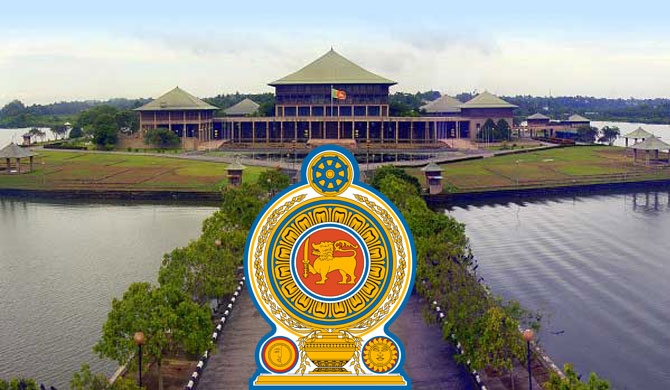President Ranil Wickremesinghe has decided to prorogue Parliament with effect from midnight today (28).
According to the extraordinary gazette issued this evening, the next session will commence at 10:30 AM on 3rd August 2022.
What does it mean when Parliament is Prorogued?
A prorogation which is a temporary recess of Parliament, should not extend to a period of more than two months, However, such date for summoning Parliament may be advanced by another Presidential Proclamation provided it is summoned for a date not less than three days from the date of such fresh proclamation.
When Parliament is prorogued, the Proclamation should notify the date for the commencement of the new Session of Parliament under Paragraph (3) of Article 70 of the Constitution.
Constitutional Provisions:
During the prorogation the Speaker continues to function and the Members retain their membership even though they do not attend meetings of Parliament.
The effect of a prorogation is to suspend all current Business before the House and all proceedings pending at the time are quashed except impeachments.
A Bill, motion or question of the same substance cannot be introduced for a second time during the same Session. However, it could be carried forward at a subsequent Session after a prorogation.
“All matters which having been duly brought before Parliament, have not been disposed of at the time of the prorogation of Parliament, may be proceeded with during the next Session,” states the Paragraph (4) of Article 70 of the Constitution.
Pending Business of Parliament:
In the light of this constitutional provision, a prorogation does not put an end to pending Business. Thus, a pending matter may be proceeded with from that stage onwards after the commencement of the new Session. At the beginning of a new Session all items of Business which were in the Order Paper of Parliament need to be re-listed, if it is desired to continue with them.
Commencement of the New Session:
At the end of a prorogation a new Session begins and is ceremonially declared open by the President. He is empowered under the Constitution to make a Statement of Government Policy in Parliament at the commencement of each Session of Parliament and to preside at ceremonial sittings of Parliament in terms of the provisions stipulated in Paragraph (2) of Article 33 of the Constitution.
The President is empowered to make a statement of Government Policy at the commencement of each new Session. In the past, it was known as the Throne Speech which was delivered by the Governor-General.


